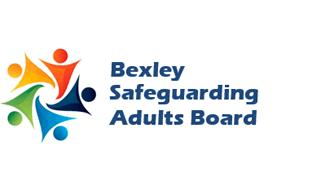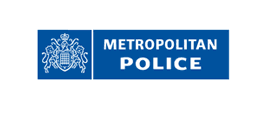Introduction
Under the Care Act 2014, Safeguarding Adults Boards (SABs) are responsible for Safeguarding Adults Reviews (SARs). This resource aims to help SABs in thinking about how they fulfil those responsibilities. It focuses on a selection of key issues. It is intended to supplement the policy development work already underway or completed by SABs (SCIE, https://www.scie.org.uk/safeguarding/adults/reviews/care-act)
The Care Act 2014 states that BSAB’s must conduct any Safeguarding Adults Review (SAR) in accordance with Section 44 of the Act.
For more information on how to refer or for the relevant forms please click on the links below:
 BSAB SAR PROTOCOL
BSAB SAR PROTOCOL- 7 minute briefing Statutory Notification
- Quick link for Notification form
- BSAB SAR LEAFLET
A SAR is a multi-agency process that considers whether or not serious harm experienced by an adult or group of adults at risk of abuse or neglect, could have been predicted or prevented and uses that consideration to develop learning that enables the safeguarding adults partnership in Bexley to improve its services and prevent abuse and neglect in the future.
The Care Act 2014 states “SARs should reflect the six safeguarding principles” these are:
- Empowerment – People being supported and encouraged to make their own
decisions and informed consent. - Prevention – It is better to take action before harm occurs.
- Proportionality – The least intrusive response appropriate to the risk presented.
- Protection – Support and representation for those in greatest need.
- Partnership – Local solutions through services working with their communities.
Communities have a part to play in preventing, detecting and reporting neglect and abuse. - Accountability – Accountability and transparency in delivering safeguarding.
This document sets out the BSAB’s criteria for conducting a Safeguarding Adults Review (SAR) and options for conducting those reviews. The associated guidance and templates are designed to ensure governance of the process and to provide a process for achieving a complex and challenging task more effectively.
Purpose
Safeguarding Adult Reviews (SAR’s) provide an opportunity to improve inter-agency working, for onward dissemination of lessons learnt to partner agencies, the sharing of best practice and ultimately better safeguarding of adults at risk of abuse or neglect. They are not enquiries into how a vulnerable adult died or who is culpable; that is a matter for safeguarding enquiries, Coroners or Criminal Courts to determine, as appropriate.
The purpose of a SAR is to prevent serious harm or the risk of serious harm to adults at risk of abuse or neglect by learning from complex cases that agencies find challenging, which, on initial analysis, demonstrate areas of practice that could have been delivered more effectively and additionally, where there are clear concerns that agencies have not worked as well together as they might.
A SAR will be focused on ensuring learning and improvement of practice and partnership responses to addressing or preventing abuse or neglect of adults at risk. This process is explicitly not about blaming any agency, service or individual. However, it will be expected of all agencies to embed the learning and its findings with accountability to the Board. It should also be noted that this process is not intended to simply focus on the most dramatic and harmful cases, but on those that afford maximum learning in Bexley.
The purpose IS to:
- establish the facts
- establish whether there are lessons to be learnt from the circumstances of the case about the way in which local professionals and agencies (or any other person involved in the care of the adult) work together to safeguard adults at risk
- review the effectiveness of procedures (both multi-agency and those of individual organisations)
- inform and improve local inter-agency practice and commissioning arrangements
- improve practice by acting on learning and developing best practice
- prepare or commission an overview report which brings together and analyses the findings of the various reports from agencies in order to make recommendations for future action
NOT to:
- reinvestigate or apportion blame.
- address professional negligence. Should the review identify necessary disciplinary action this should be addressed through agencies’ own Disciplinary Procedures. IMR authors, therefore, need to be cognisant of their agency’s disciplinary procedures
- be an enquiry into how an adult at risk has died: that is a matter for the Coroner’s Court.
- be an enquiry into who is culpable for the death of that adult at risk: that is a matter for the Criminal Courts.
- a Judicial Inquiry: there is no oral evidence or cross-examination of that evidence. It is acknowledged that agencies may have their own internal/statutory review procedures to investigate serious incidents; e.g. an NHS Serious Incident Investigation (Appendix 4). This protocol is not intended to duplicate or replace these. Agencies may also have their own mechanisms for reflective practice.







